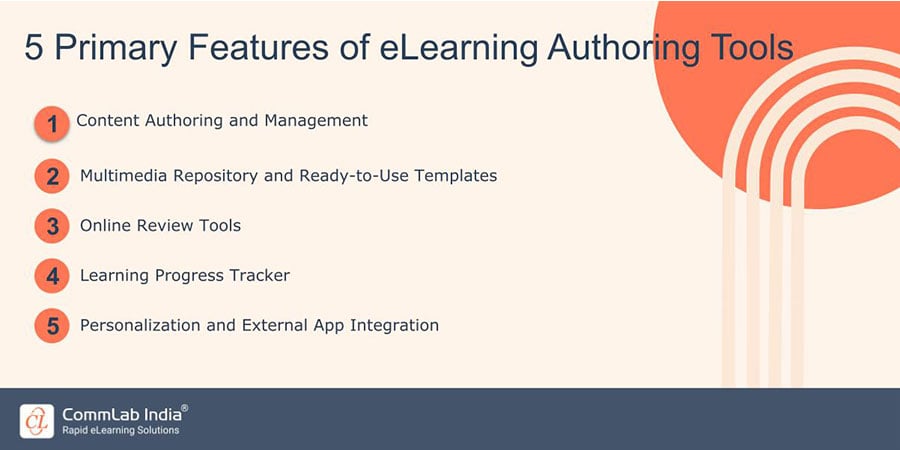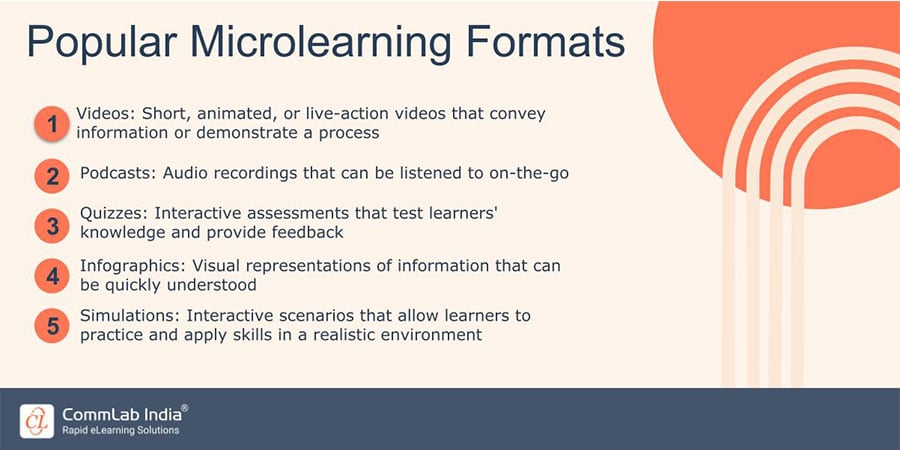Elevate Your Training Game: Harnessing Cutting-Edge Digital Learning Tools

In the relentless race for success, your team is the engine driving your organization forward. But how do you keep that engine finely tuned and ready for any challenge in the digital age? It's time to embrace the power of cutting-edge digital learning tools. These remarkable tools are reshaping how we learn and grow, offering flexibility, engagement, and accessibility like never before. Join us on a journey into the world of these dynamic tools, from immersive VR experiences to bite-sized mobile learning. Discover how to unleash your team's full potential in just a few clicks.
Are You a Training Manager Trying to Get Started with Digital Learning?
Here are a few types of tools you need to leverage -
- Learning management systems
- eLearning authoring tools
- Gamification platforms
- Project management and collaboration platforms
- Social learning platforms
10 Types of Digital Learning Tools Every Training Manager Needs to Leverage
1. Learning Management Systems (LMS)
Learning Management Systems (LMS) serve as a centralized hub for creating, managing, and delivering training content. They provide a structured platform for organizing courses, tracking learner progress, and assessing performance. LMS platforms are essential for streamlining training processes in both corporate and educational settings. They offer scalability, customizable features, and robust reporting, making them a cornerstone of modern training programs. Here are a few popular LMS platforms -
- Moodle: Open-source and highly customizable, Moodle is favored for its flexibility and cost-effectiveness.
- Blackboard: Known for its robust features, Blackboard is widely used in educational institutions and corporate settings.
- TalentLMS: A user-friendly LMS with a focus on simplicity and ease of use.
→ Download Free eBook - eLearning Trends 2023
2. Video Conferencing and Webinar Platforms
Video conferencing and webinar platforms enable live, virtual training sessions and meetings. They facilitate real-time interaction between trainers and learners, often featuring tools like screen sharing, chat, and recording capabilities. These platforms have become indispensable for remote and hybrid work environments, providing a lifeline for collaborative learning, presentations, and knowledge sharing. Some of the popular platforms are mentioned below -
- Zoom: Renowned for its simplicity and scalability, Zoom is a go-to choice for video conferencing and webinars.
- Microsoft Teams: Integrated with the Microsoft 365 suite, Teams is ideal for businesses seeking a unified collaboration platform.
- Cisco Webex: Known for its security features, Webex is often chosen by enterprises with stringent security requirements.
3. eLearning Authoring Tools
eLearning authoring tools empower training managers to create customized e-learning courses. They offer a range of features to design interactive and multimedia-rich content, including videos, quizzes, and simulations. These tools are instrumental in tailoring training materials to specific learning objectives and ensuring engagement through interactive elements. The popular platforms include -
- Articulate Storyline: Loved for its intuitive interface and extensive template library, Storyline is a favorite among course creators.
- Adobe Captivate: Known for its robust multimedia capabilities, Captivate allows for highly interactive e-learning experiences.
- Lectora: Celebrated for its user-friendly approach and mobile-friendly output.

4. Gamification Platforms
Gamification platforms infuse game-like elements into the learning experience, such as quizzes, leaderboards, and rewards. They leverage principles of competition and achievement to engage learners actively. Gamification enhances motivation, participation, and knowledge retention, making it an exciting approach for training and skill-building programs. These platforms can transform traditional training content into interactive and enjoyable learning adventures. Check out a few popular ones below -
- Kahoot!: Widely used for quizzes and trivia-style games in both educational and corporate settings.
- Quizlet: A versatile platform for creating flashcards, quizzes, and learning games.
- Badgeville: Offers a comprehensive gamification platform for employee engagement and learning.
5. Microlearning Platforms
Microlearning platforms are designed to deliver short, focused bursts of training content, typically in the form of bite-sized modules. These platforms are accessible via various devices, including smartphones and tablets, making them perfect for just-in-time learning. Microlearning aims to provide concise, targeted information to learners, maximizing retention and minimizing time investment. Let’s check out a few trending ones -
- Axonify: Known for its microlearning expertise, Axonify provides personalized learning experiences and analytics to track employee progress.
- Grovo: Grovo offers a library of microlearning content and a user-friendly interface, making it a popular choice for quick, impactful training.

6. Mobile Learning Apps
Mobile learning apps deliver training materials directly to smartphones and tablets. They provide flexibility and accessibility, allowing learners to access content anytime and anywhere. These apps are particularly effective for on-the-go learning, making them a convenient choice for employees looking to fit learning into their busy schedules. Mobile learning apps offer a wide range of training materials, from quick reference guides to comprehensive courses, all within the palm of one's hand. Here are a few popular apps -
- Duolingo: Duolingo is a highly popular language-learning app known for its gamified approach to language acquisition.
- SoloLearn: SoloLearn is a mobile-exclusive learning platform dedicated to programming and coding. It offers a wide range of free coding courses, including languages like Python, Java, JavaScript, and more.
7. Assessment and Quiz Tools
Assessment and quiz tools enable trainers and educators to create quizzes, assessments, and surveys for learners. These tools provide a structured way to evaluate knowledge, gauge understanding, and gather feedback. They are essential for monitoring learner progress and assessing the effectiveness of training programs. Assessment and quiz tools often offer various question formats and analytics to measure learning outcomes. Some trending tools are -
- SurveyMonkey: A versatile tool for creating surveys and quizzes, SurveyMonkey offers a user-friendly interface and robust reporting capabilities.
- Typeform: Typeform is an interactive survey and quiz tool known for its user-friendly and visually engaging forms. It allows users to create quizzes with a conversational and interactive format, making it ideal for engaging with respondents.
- Google Forms: Part of the Google Workspace suite, Google Forms enables easy creation of quizzes and surveys with real-time response tracking.
8. Project Management and Collaboration Tools
Project management and collaboration tools are primarily designed for team collaboration and task management but can be valuable for training projects. These tools facilitate planning, communication, and organization among team members working on training initiatives. They help trainers and training managers coordinate efforts, track progress, and ensure that training projects run smoothly. Here are a few popular ones to check out -
- Trello: Known for its visual task management boards, Trello helps teams organize projects and tasks in an intuitive way.
- Asana: Asana provides project management and task tracking features, making it easy to manage workflows and collaborate effectively.
- Slack: While primarily a team messaging app, Slack supports integrations for project management and collaboration, enhancing team communication.
9. Analytics and Reporting Tools
Analytics and reporting tools are used to gather and analyze data related to training programs. They offer insights into learner performance, completion rates, and engagement metrics. These tools are crucial for assessing the effectiveness of training initiatives, identifying areas for improvement, and making data-driven decisions to enhance future training programs. Check out a few trending tools below -
- Google Analytics: Google Analytics is widely used for tracking website and app performance, making it valuable for assessing online training platforms.
- Tableau: Tableau offers advanced data visualization and reporting capabilities, enabling organizations to create compelling training-related dashboards.
- Moodle Analytics: Specifically designed for Moodle users, this tool provides insights into learner performance within Moodle-based courses.
10. Social Learning Platforms
Social learning platforms are designed to foster collaboration, knowledge sharing, and engagement among learners. These platforms often integrate with communication tools, creating spaces for learners to interact, discuss, and support each other's learning journeys. Social learning enhances engagement by facilitating peer-to-peer learning and allowing learners to benefit from collective knowledge. Here are a few trending platforms right now -
- Yammer: Microsoft's Yammer is an enterprise social network designed for communication, collaboration, and knowledge sharing.
- Slack: While primarily a team messaging app, Slack also supports integrations for creating learning-focused channels and communities.
- Microsoft Teams: Teams combines chat, video conferencing, file sharing, and app integration, making it a robust platform for social learning and collaboration.
Wrapping Up!
Before we wrap up this blog, its necessary to note that training managers should always prefer to assess their organization's specific needs and goals before they tend to select the most suitable digital learning tools for their training programs. Often, a combination of these tools may be used to create a comprehensive and effective training strategy. By harnessing the power of these tools, training managers can create effective and engaging learning experiences for their teams, ultimately driving growth and success within their organizations. If you wish to see whats trending in the eLearning industry, here’s an eBook you shouldn’t miss out on. Grab your copy now!





